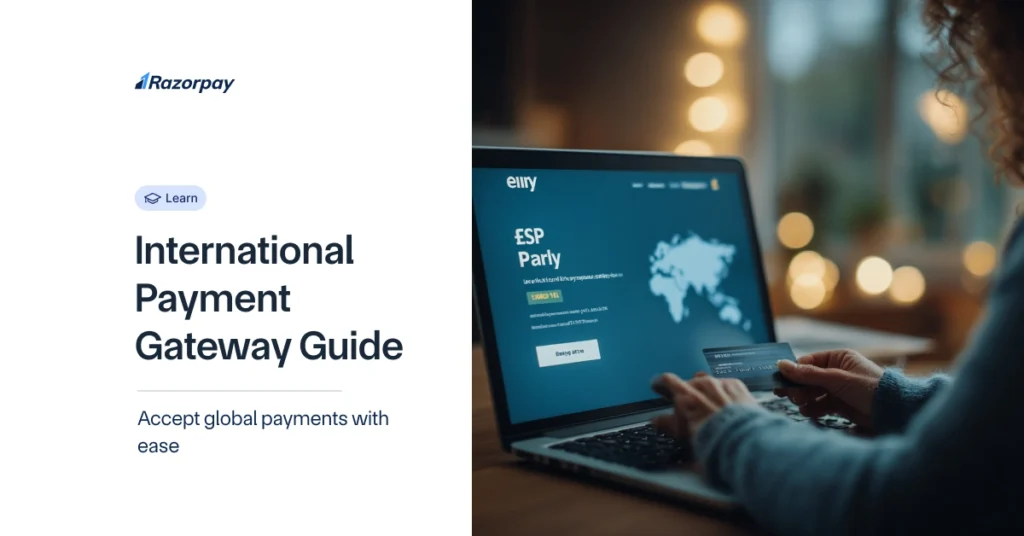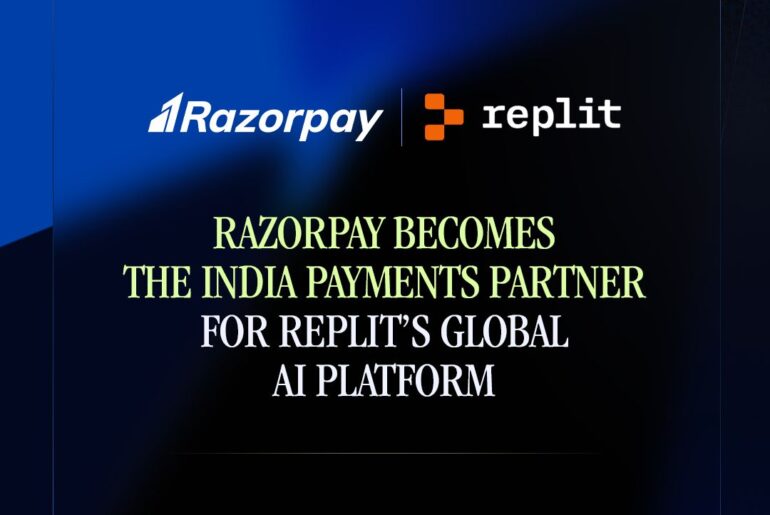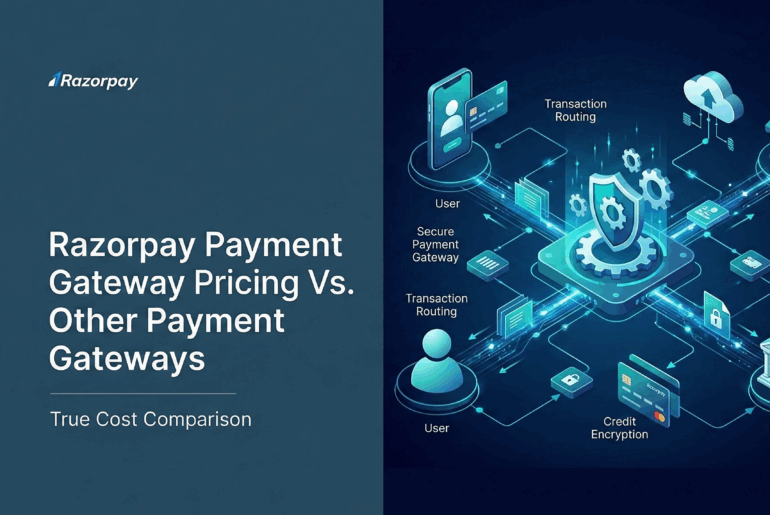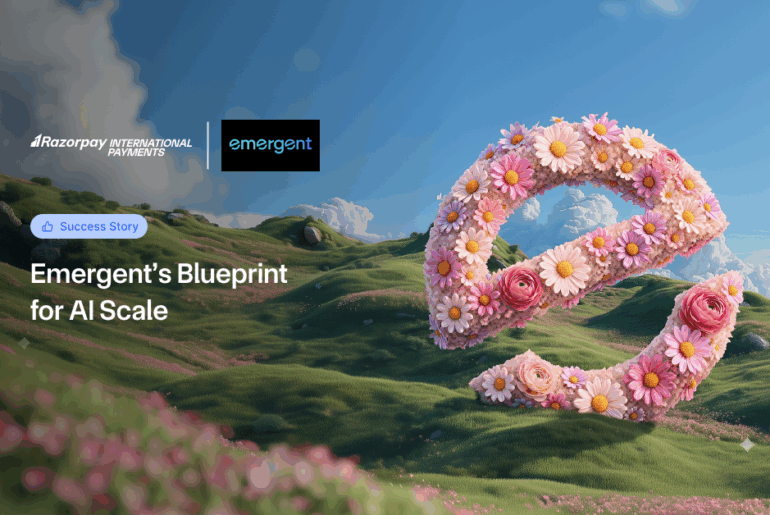As the Indian digital economy continues to grow, businesses are increasingly engaging in global trade. Companies dealing with customers worldwide now depend on the right payment gateway to facilitate smooth and secure transactions across borders. With an estimated 5.3 billion global e-commerce users by 2027, the global marketplace presents significant opportunities for businesses to extend their reach. However, capitalising on these opportunities requires enabling seamless and secure transactions across international borders.
International payment gateway solutions have become vital for companies wanting to do business globally. These gateways allow businesses to accept payments from customers worldwide in their local currencies, breaking down geographical barriers and significantly enhancing a company’s customer base and revenue potential.
Table of Contents
Key Takeaways
- International payment gateways enable businesses to accept payments from customers worldwide in multiple currencies.
- These gateways offer robust security measures, fraud prevention, and compliance with regulatory standards.
- Choosing the right international payment gateway involves considering factors such as transaction costs, payment methods supported, integration compatibility, and scalability.
- Indian businesses must comply with regulations such as FEMA, RBI norms, GST on exports, and TDS on foreign remittances when accepting international payments.
- Common challenges like complex compliance requirements, high fees, currency conversion issues, and delayed settlements can be overcome by selecting the right gateway provider.
International Payment Gateway: What It is and What It is Not
An international payment gateway is a digital portal that authorises and processes online transactions between customers and businesses in different countries. It is a key component of e-commerce platforms, facilitating payments in multiple currencies and enabling businesses to conduct and expand their operations globally with ease.
Some key features of international payment gateways include:
- Accepting a wide range of payment methods (credit/debit cards, digital wallets)
- Improving the shopping experience for international customers
- Connecting businesses to global payment networks
However, it’s important to note that international payment gateways are not:
- A replacement for a merchant account or a bank account
- A one-size-fits-all solution for every business
- Immune to transaction fees and currency conversion costs
Why International Payments Matter?
The rise of e-commerce has opened up a world of opportunities for businesses to reach customers beyond their local markets. By accepting international payments, companies can:
- Significantly expand their customer base and revenue potential
- Cater to a broader range of customer preferences and expectations
- Stay competitive in an increasingly globalised marketplace
Moreover, with the Indian e-commerce market projected to reach $200 billion by 2027, enabling cross-border transactions is crucial for businesses looking to capitalise on this growth.
The Core Components of an International Transaction
The Acquiring Bank: Your Entry to the Global Financial System:
The acquiring bank is the financial institution that processes transactions on behalf of the merchant. It acts as a bridge between the merchant and the card networks (Visa, Mastercard, etc.), facilitating the transfer of funds from the customer’s account to the merchant’s account.
The Real Cost: Understanding Interchange & Forex Fees:
Interchange fees are charged by card-issuing banks to cover the cost of processing transactions. These fees vary based on factors such as card type, transaction volume, and risk level. Additionally, international transactions involve foreign exchange (forex) fees, which are costs associated with converting one currency to another.
The Security Mandate: PCI DSS Compliance:
The Payment Card Industry Data Security Standard (PCI DSS) is a set of security requirements designed to ensure that all companies processing, storing, or transmitting credit card information maintain a secure environment. Compliance with PCI DSS is crucial for businesses accepting international payments to protect sensitive customer data and prevent fraud.
Key Features to Demand from Your International Payment Gateway
When choosing an international payment gateway, look for the following essential features:
Robust Security & Fraud Prevention:
The gateway should employ state-of-the-art security measures such as encryption, tokenisation, and advanced fraud detection systems to safeguard sensitive customer data and prevent fraudulent transactions.
Multi-Currency & Payment Method Support:
A good international payment gateway should support a wide range of currencies and payment methods, including credit/debit cards, digital wallets, and bank transfers, to cater to the diverse preferences of global customers.
Streamlined Regulatory Compliance:
The gateway should help businesses stay compliant with various financial regulations and standards, such as PCI DSS, GDPR, and local laws, to avoid legal complications and maintain customer trust.
Advanced Analytics and Reporting
An international payment gateway should provide detailed analytics and reporting features, allowing businesses to gain valuable insights into customer behaviour, sales trends, and revenue performance. This data can inform strategic decision-making and drive business growth.
A Step-by-Step Guide to Choosing the Right Gateway
- Define Your Business Needs: Determine your target countries, expected transaction volume, and specific requirements based on your business size, industry, and growth plans.
- Analyze All Transaction Costs: Research and compare the fee structures of different gateways, including setup fees, monthly charges, transaction fees, and any hidden costs, to ensure they align with your budget and transaction volume.
- Verify Payment & Currency Support: Check if the gateway supports the payment methods and currencies preferred by your target customers to provide a seamless transaction experience.
- Evaluate Security & Compliance: Ensure the gateway meets high security standards like PCI DSS Level 1 and employs robust encryption and fraud prevention measures to protect sensitive data and maintain compliance with regulations.
- Test Integration & Support: Assess how easily the gateway integrates with your existing systems and evaluate the quality and availability of customer support to ensure smooth implementation and ongoing assistance.
- Plan for Scalability: Choose a gateway that can scale with your business as transaction volumes grow and you expand into new markets, avoiding the need to switch providers later.
Navigating Local Challenges & Solutions
The Problem with Traditional Methods:
Traditional cross-border payment methods like wire transfers and foreign currency demand drafts are slow, expensive, and often lack transparency. These drawbacks can lead to delayed settlements, high fees, and a poor customer experience.
Understanding the RBI’s Framework:
The Reserve Bank of India (RBI) has established a regulatory framework for international payments, which includes guidelines on forex management, anti-money laundering (AML), and know your customer (KYC) requirements. Businesses must comply with these regulations to avoid legal complications and maintain a smooth flow of funds.
Leveraging India’s Payment Rails:
India’s domestic payment infrastructure, such as UPI, IMPS, and NEFT, can be leveraged to facilitate faster and more cost-effective international transactions. Some international payment gateways have integrated these local payment rails, enabling businesses to offer their global customers a more convenient and familiar payment experience.
The Core Challenge: Balancing Global Ambition with Local Complexity
Navigating the complexities of international payments while staying compliant with local regulations can be a daunting task for Indian businesses. Choosing the right payment gateway that understands the Indian context and provides the necessary tools and support is crucial for success in the global marketplace.
Empowering Indian Businesses with Razorpay International Payment Gateway
Razorpay, a leading Indian payment gateway provider, offers a comprehensive solution for businesses looking to accept international payments. With Razorpay’s International Payment Gateway, you can:
- Accept payments in 100+ currencies from customers worldwide
- Support popular global payment methods like credit/debit cards, PayPal, and Stripe
- Benefit from competitive forex rates and transparent pricing
- Ensure compliance with RBI regulations and global security standards
- Receive 24/7 support from a dedicated team of experts
Razorpay’s international payment gateway is designed to empower Indian businesses to go global with ease, providing the tools and expertise needed to navigate the complexities of cross-border transactions.
Conclusion
India is now one of the top players in cross-border commerce, with a 6% year-over-year increase in total exports during the first nine months of FY 2024–25. Enabling international transactions is necessary for fast-growing startups and digital-first businesses. An International Payment gateway allows Indian businesses to accept payments in any currency from customers worldwide.
With an international payment gateway, businesses can build trust and expand globally. Setup involves choosing a provider, KYC, integration, and multi-currency support. Key considerations include FEMA, RBI, IEC, GST, and TDS. Overcome challenges like fees and compliance by selecting the right gateway, enabling Indian businesses to achieve global impact.
Frequently Asked Questions (FAQs)
What is the difference between an international payment gateway and a domestic one?
An international payment gateway enables businesses to accept payments from customers worldwide in multiple currencies, while a domestic payment gateway only facilitates transactions within a single country and currency.
How are forex conversion fees calculated and can they be avoided?
Forex conversion fees are typically a percentage of the transaction amount and are applied when converting one currency to another. While these fees cannot be entirely avoided, businesses can minimise them by choosing a payment gateway with competitive forex rates and transparent pricing.
What is the RBI’s PA-CB license and why is it important for a payment gateway?
The RBI’s Payment Aggregator and Payment Gateway (PA-PG) license is a mandatory requirement for entities offering payment aggregation services in India. A payment gateway with a PA-PG license ensures compliance with RBI regulations and provides an added layer of trust and security for businesses and customers.
Can I use UPI to accept payments from international customers?
Currently, UPI is only available for domestic transactions within India. However, some international payment gateways have integrated UPI into their platform, allowing businesses to offer UPI as a payment option to their global customers.
How long does it take for international payments to settle in my Indian bank account?
Settlement times for international payments can vary depending on the payment gateway and the currencies involved. On average, it can take anywhere from 2-7 business days for funds to be credited to your Indian bank account.
What is a “white-label” payment gateway and is it a good option for startups?
A white-label payment gateway is a customisable solution that allows businesses to offer payment services under their own brand name. While it can be a good option for startups looking to establish their brand identity, it may involve higher setup costs and maintenance requirements compared to a standard payment gateway.
Do I need a SWIFT code to receive international payments through a gateway?
In most cases, you do not need a SWIFT code to receive international payments through a gateway. The payment gateway acts as an intermediary, collecting funds from the customer and transferring them to your designated bank account. However, some gateways may require you to provide a SWIFT code for certain currencies or payment methods.



